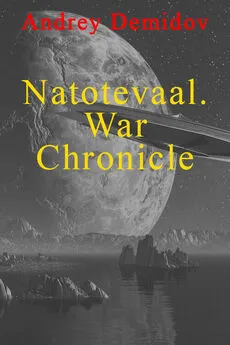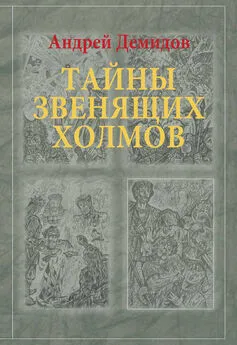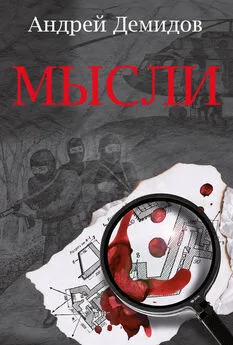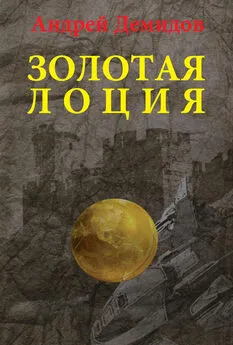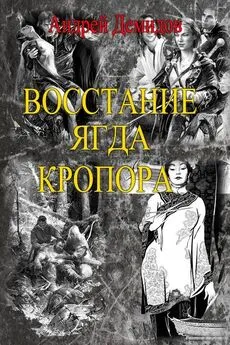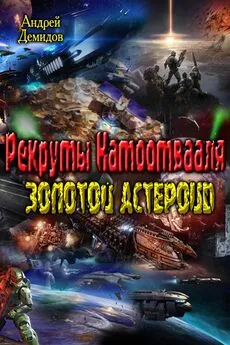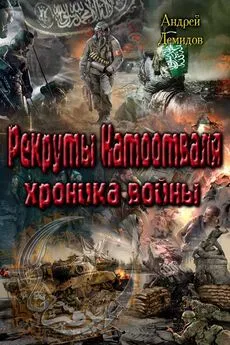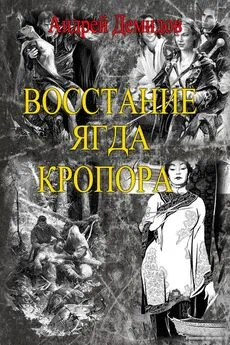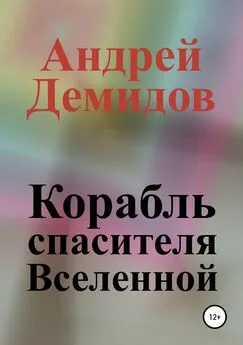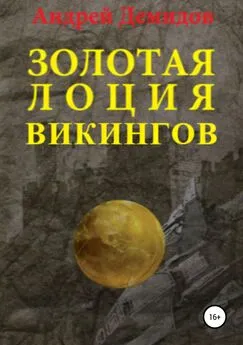Андрей Демидов - Natotevaal. War Chronicle
- Название:Natotevaal. War Chronicle
- Автор:
- Жанр:
- Издательство:Литагент Selfpub.ru (искл)
- Год:неизвестен
- ISBN:нет данных
- Рейтинг:
- Избранное:Добавить в избранное
-
Отзывы:
-
Ваша оценка:
Андрей Демидов - Natotevaal. War Chronicle краткое содержание
Natotevaal. War Chronicle - читать онлайн бесплатно ознакомительный отрывок
Интервал:
Закладка:
Another thing is that fiction provides a unique opportunity for revaluation of all values (almost according to Nietzsche’s project), or at least for evaluating different versions of the hierarchy of values and preferences.
But in any case, there should be a certain binding to ones or the other values accepted as default, because otherwise it would be impossible to perceive new, unusual and unfamiliar ideas as essential.
The utmost escapism is inevitably related to the main flow of life – the question is always about the desire to escape from something and the destination of running.
However, there are things which one can never get away from – himself for example, – and this turns out to be the most important, the most valuable thing, and that is what one has to deal with in the long run, but in order to find this balance, everything has to be checked for strength and sustainability – as well by the means of fiction.
Of course, the diversity of aspects of fiction capabilities listed above is in no way exhaustive.
At least two relatively autonomous aspects are worth mentioning separately, as they are distinguished on other grounds.
The social aspect of science fiction – and probably the most significant behind its limits – is primarily associated with the expression and comprehension of the ideals of social order (directly and primarily in the form of various utopias and anti-utopias – respectively, the positive and the negative), and also provides the development of the future, with a reinterpretation of the past (alternative history), with recovery of the socio-cultural condition of the world and forming human relationships, not to mention overcoming xenophobia and tolerance development.
For example, Rorty highly appreciates the role of fantastic experiments carried out in the novels of George Orwell, which help to understand the nature of a man, the formation of the modern concept of a fair society and avoidance of violence.
By the way, the heated debates on the program of so-called gender studies elegantly complement the fictional models of societies, cultures and civilizations, built on a completely different (from what we are used to) principles: it is not just about the possibility of existing of other life forms (in one case – the androgynous, and in the other – proclaiming and accepting dominance of homosexual contacts over heterosexual), but also more exotic ways of existence – the robots, for instance, which also happen to be discriminated like women, blacks, gays, children and other peculiar characters.
Anyway – fiction is indispensable in demonstration of the fundamental conditionality of all forms of human interaction, even if it reproduces the steady absoluteness of the required functions.
Finally, we could also mention the ability of fiction to act as an emphasized workaround, as a form of Aesop's language, which allows to disguise ideological and political journalistic statements for works of art avoiding censure, if such products in fact, do not belong to the fiction itself in a quite indirect way.
The discursive aspect of fiction is primarily associated with the means of its realization and perception.
The main question is what conditions and assumptions are necessary for the existence of fiction as purely fantastical, not accepted as a brazen lie, that is, or an attempt to mislead or a story about reality.
After all, fiction is also expressed with initially limited means (ordinary language – minimally modified, or built up); the fact that these means are certainly excessive (realities, concepts, constructs, concepts…); on the one hand, fiction works are unlike purely formal search experiments of avant-garde and modernism, and on the other hand, from the popular science literature, support the delicate balance of subtle contrasts of the usual and unusual, explicable and wonderful, traditional and new, natural and artificial…
For example, the metaphorical transfer is often used inversely, if the standard step is to compare technical progress with natural or magical, the device of reverse provides a unique effect.
Thus fiction forms, constantly reproduces and maintains a special horizon of expectation in the space of the absence of the true/false opposition, in other words, creates new evidence with the help of the self-extracting code and its reader, who has a taste for such a recoding and other similar intellectual procedures.
The subject-indicating focus of language means is transformed by the means of fiction discourse in the functioning process into subject-projecting, the goal of which is to reveal the unprecedented.
Thus, science fiction acts as discursively embodied means of literature and/or visual arts (painting, drawing, sculpture, movie…) as something given, represented, described, but nonexistent, but real and materialized at the same time – unlike, abstract art for instance.
The peculiarity of the fictional in this sense is mostly defined by separation from the rest and self-restraint, by the act of mental balancing in testing the different types of discourse.
The most widely open and extremely pointed (though, again, not to a radical break) fiction discourse becomes the generative source for filling the gaps in lacunae, detected in the accepted discourse or the worldview.
Fiction is attractive due to its invincible variety; it opens new conceptual space and carries away to an amazing, wonderful, mysterious, unknown, unusual, supernatural and going beyond the limits.
Like a mental experiment in physics (Maxwell's demon, Schr;dinger's cat, Einstein’s elevator) fantasy provokes construction of unexpected concepts in other sciences, including a collection of imaginary constructs that have numerous applications – the imaginary logic of Vasilyev, the unspeakable communities and imaginary social institutions.
But this goes far beyond science, of course, – Tolkien's epic "The Lord of the Rings" for example, could easily be interpreted as a full-fledged version of a modern esoteric doctrine.
At the attempts to locate science fiction into a tight conceptual grid it often happens that all the definitions fade and moreover blur the stereotypical schemes of perception and thought.
Science fiction fans are well aware of the harm which "science-fiction mass consumption products" do to this genre.
Heroes there are substituted with schemes (even super-schemes), supermen with crystal-clear and empty soul.
With stagy ease these "heroes" use their abilities in time and space, unlimited even by common sense.
Cinematography did not go far beyond from the publishers in this sense, making new "supermen" and new "star massacres" rich with dynamics which are made at a really fantastic technical level.
Therefore, the appearance of such work as a novel by Andrey Demidov "The Natotevaal Recruits" should become a significant, and even iconic event not only in the paradigm of fiction, but of the literary process in general.
Why are we talking about literature in general in this case?
Because literature is always a non-fictional (and sometimes distorted) reflection of the present.
But can we say that works of fiction genre reflect the future?
No, we cannot.
The present is refracted and repeated in a special form in them.
The future – is just a prism through which science fiction writer considers his time, his contemporaries. However, this prism still allows the readers to see features of future in the present.
That is why we can confidently say that fiction helps a person in a world, that is changing with tremendous speed, especially nowadays, when the rate of change has dramatically increased, and all these changes can be both beneficial as well as threatening to the mankind.
Fiction, that describes possible changes, prepares a person for a real change and helps either to adjust to it or to change oneself.
But are these changes of human nature really needed and are they possible?
We live in a world, predicted by science fiction writers decades ago.
Andrey Demidov’s protagonists live in a world, the suppositions of which we are making today, the premises of which we can see even now.
It is a world in which the most formidable predictions of science fiction writers and futurists have come true.
A world, in which nuclear weapons have been brought into play, killing millions of people and a world, where the survivors envy the dead.
This is a world where Christian and Muslim civilizations meet in a deadly combat, a world in which tolerance and liberalism have been completely refuted.
This is the world where the danger of physical, intellectual and moral degradation of the mankind as a whole – is an obvious fact, the everyday reality of life.
Essentially, it is a world without a future.
Andrey Demidov’s heroes do not even get a chance to think about the future.
They have other problems to deal with.
Their past is war, their present is war, and their future – mysterious, enigmatic and unknown – will most likely result in war.
War – is the occupation of the novel's characters.
They are fighting for their race, their land, their families, but by chance they will have to take part in battles of a totally different level.
In childhood, joyfully shooting the space fleet of "the evil empire" on cheap game consoles, the novel's characters naively believed that monstrous plans of "Star Wars" would be carried out somewhere far away from Earth and certainly never dreamed of being at the forefront of these space wars, but soon… In a while they are going to find themselves taking part in a totally different war:
“Getting out from a pile of floppy disks and coils of a collapsed rack of the archive, Whitehouse was anxiously listening to the established silence.
The emitter of «Das Rhein» was quiet.
Mackliff was pottering about nearby, "Yes, it has been a long time I was hit in the face like that…"– he said, letting trickles of blood pour into the weightlessness down his smashed nose.
The speaker of internal communication rustled again:
– ‘Das Rhein’ calls up ‘Independence’, ‘Das Rhein’ calls up ‘Independence’.
Raumwaffe Colonel Manfred von Conrad speaking…As a result of penetration of a cumulative rocket, depressurization of all compartments has occurred. I beg permission to move to your Shuttle.
Whitehouse approached the microphone as quickly as it was possible:
– Yes, hurry up. We will open the lower gateway.
German astronauts appeared in ten painfully long minutes.
Covers of cadmium suits were torn apart; glass of pressure helmets was smoke-stained, identification badges looked faded.
Their eyes were empty, staring at one point. Their faces looked like the astronauts have just returned from the underworld. There were four of them, Colonel von Conrad, Navigator Eichberger and board gunner Hoffman, who was laid next to the fourth, Matthias Leiseheld, whose body was inside a funeral package with a small black-and-red-and-yellow flag pinned to the chest.
He was killed when one of the missiles hit the emitter tower.
– Well, what do we do now? – Eichberger asked gloomily.
– Allah Akbar. That's what. – Von Conrad looked up at his Navigator with his dull eyes, reddened from capillary bleeding, and brushed the edge of his hand across his throat.
A game of this self-confident giant with legless midgets went on for several minutes, after which the remaining Stergs were turned into rubble with a few exact salvos.
– Now, that’s what I call real war! – Von Conrad broke the deathly silence and clapped his hands. – Bravo, Swertz.”
Читать дальшеИнтервал:
Закладка:
